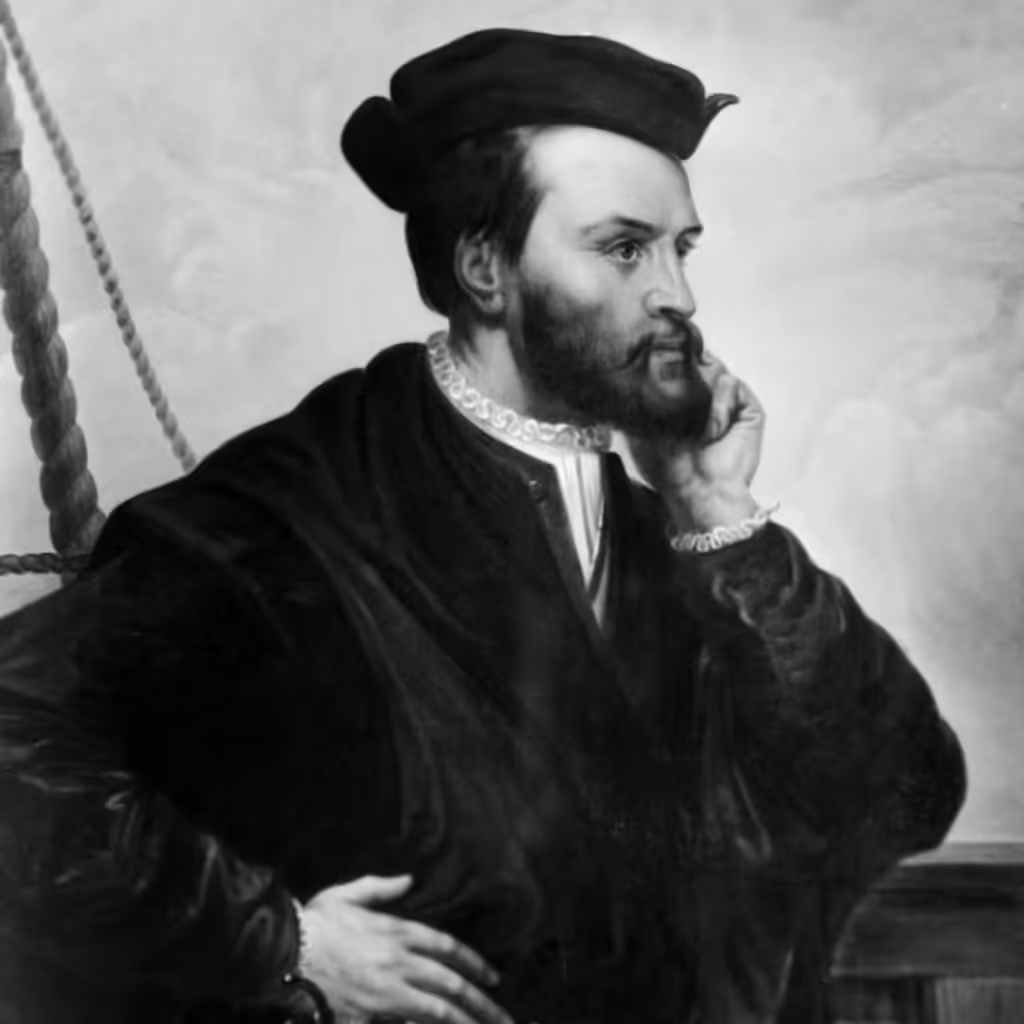
Table of Contents
Jacques Cartier: French Explorer and His Impact on North America
Jacques Cartier, a renowned French navigator, was commissioned by King Francis I in 1534 to explore the New World in search of wealth and a potential new route to Asia. His expeditions, particularly his exploration of the St. Lawrence River, were instrumental in establishing France’s claim to territories that would later become Canada. Cartier passed away in his hometown of Saint-Malo in 1557, leaving a lasting legacy as one of the key figures in the early European exploration of North America.
Early Life and Initial Voyage to North America
Cartier was born on December 31, 1491, in Saint-Malo, France, a coastal town known for its seafaring tradition. Before embarking on his famed voyages, he is believed to have explored parts of the Americas, including Brazil. His experience and reputation as a skilled navigator likely led King Francis I to choose him for a crucial mission: to explore the northern regions of North America, seek gold, spices, and other valuable resources, and find a western passage to Asia.
On April 20, 1534, Cartier set sail with two ships and 61 men, arriving on the coast of Newfoundland within 20 days. During this voyage, he charted the west coast of Newfoundland, discovered Prince Edward Island, and navigated the Gulf of St. Lawrence, venturing as far as Anticosti Island. These explorations laid the groundwork for future French claims in North America and marked Cartier as a pivotal figure in the age of exploration.
Second Voyage
After returning to France, Jacques Cartier’s detailed report of his discoveries greatly impressed King Francis I. In response, the king promptly commissioned Cartier for a second voyage in May of the following year. This time, Cartier set sail with three ships and a crew of 110 men. Two Indigenous individuals, whom Cartier had previously taken back to France, now served as guides, helping him navigate the St. Lawrence River as far as modern-day Quebec, where they established a base.
By September, Cartier had sailed further upstream to the site of present-day Montreal. The Iroquois, who controlled the area, welcomed him and informed him of other rivers leading westward, where treasures such as gold, silver, copper, and spices were said to exist. However, before he could venture further, the onset of a brutal winter, coupled with dangerous river rapids, halted his progress. Additionally, tensions arose between Cartier’s men and the Iroquois. Forced to wait for spring, Cartier took drastic measures by capturing several Iroquois chiefs before hastily returning to France. He could only report to the king that vast riches were rumored to lie westward, and that a great river, possibly 2,000 miles long, might lead to Asia.
Third Voyage
In May 1541, Cartier embarked on his third voyage with five ships, abandoning the pursuit of a passage to the Orient. Instead, he was tasked with establishing a permanent settlement along the St. Lawrence River in the name of France. A group of colonists was scheduled to follow a few months later.
Cartier once again set up camp near Quebec. There, his men found what they believed to be gold and diamonds in abundance. However, before the colonists arrived, Cartier, not waiting for their reinforcement, abandoned the settlement and set sail for France in the spring. On his journey back, he stopped in Newfoundland, where he encountered the arriving colonists. Their leader ordered Cartier to return to Quebec, but Cartier had other plans. Under cover of night, he secretly slipped away and returned to France.
Upon his return, the “gold” and “diamonds” were revealed to be worthless, and the colonization efforts were abandoned after the settlers endured a harsh winter. The failure of this expedition caused France to lose interest in the new territories for nearly half a century, and Cartier’s career as a state-sponsored explorer came to an end. While he is credited with the exploration of the St. Lawrence region, his legacy is tainted by his troubled interactions with the Iroquois and his abandonment of the colonists.
Death
Jacques Cartier passed away on September 1, 1557, in Saint-Malo, France.
